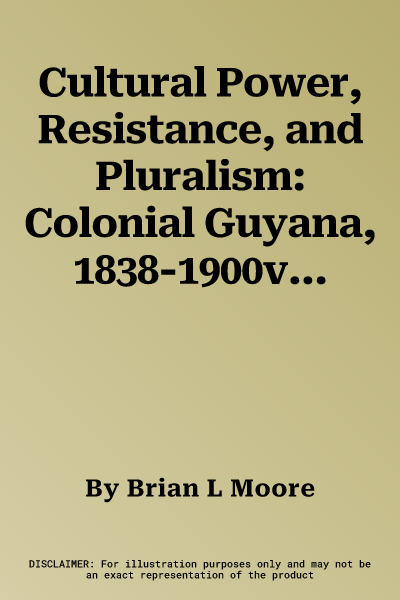Brian L Moore
(Author)Cultural Power, Resistance, and Pluralism: Colonial Guyana, 1838-1900volume 22Hardcover, 7 July 1995

Temporarily out of stock
Free Delivery
Cash on Delivery
15 Days
Free Returns
Secure Checkout

Part of Series
McGill-Queen's Studies in Ethnic History
Part of Series
McGill-Queen's Studies in Ethnic History; Series One
Print Length
500 pages
Language
English
Publisher
Carleton University Press
Date Published
7 Jul 1995
ISBN-10
077351354X
ISBN-13
9780773513549
Description
Product Details
Author:
Book Format:
Hardcover
Date Published:
7 July 1995
ISBN-10:
077351354X
ISBN-13:
9780773513549
Language:
English
Pages:
500
Publisher: